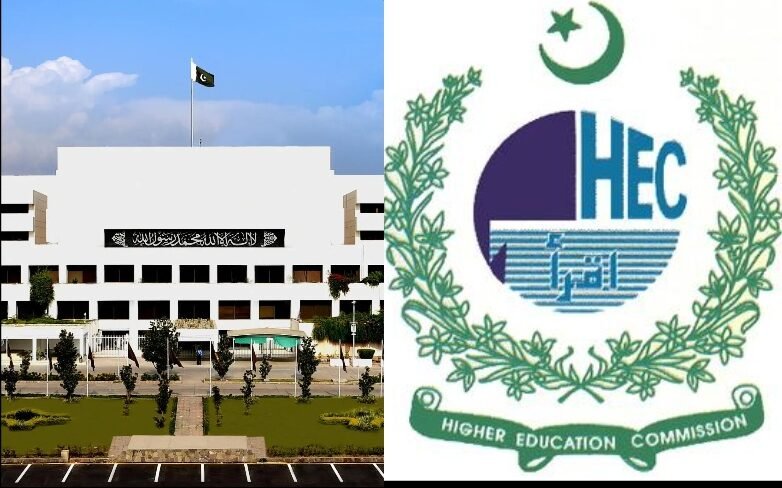The recent agreement between Pakistan and Russia to enhance road and rail connectivity through Central Asia marks a pivotal development in the geopolitics and geo-economics of the region. The bilateral discussions held between Pakistan’s Federal Minister for Communications Abdul Aleem Khan and Russian Deputy Minister of Transport Andrey Sergeyevich Nikitin, on the sidelines of the SCO Ministerial Conference in Tianjin, represent more than a diplomatic meeting they signify a renewed focus on transforming Eurasia into a more economically integrated and strategically interconnected region.
As the world becomes increasingly polarized along economic and strategic lines, regional cooperation, particularly in infrastructure, has become vital. Pakistan and Russia’s joint emphasis on accelerating the construction of highways and railways is aimed at achieving greater regional cohesion through improved logistics and trade facilitation. This commitment aligns with the broader goals of the Shanghai Cooperation Organization (SCO), which advocates economic integration and peaceful cooperation among member states.
A Strategic Imperative for Pakistan
For Pakistan, enhancing transport and logistics infrastructure with Russia and Central Asian nations offers significant long term benefits. Situated at the crossroads of South Asia, Central Asia, and the Middle East, Pakistan has the potential to become a regional trade hub. The China-Pakistan Economic Corridor (CPEC), a flagship project under China’s Belt and Road Initiative (BRI), already serves as a spine for such ambitions. However, integration with Russia and Central Asian states could provide Pakistan with access to new markets and energy corridors, reduce dependency on maritime routes, and diversify its trade partnerships.
This strategic move also aligns with Pakistan’s “Vision Central Asia” policy, which aims to deepen ties with Central Asian Republics (CARs) in sectors like energy, trade, and connectivity. Improved road and rail links could facilitate smoother movement of goods, people, and resources, thereby accelerating regional development and uplifting underdeveloped areas in northern Pakistan.
Russia, under increasing economic and political isolation from the West due to ongoing sanctions and geopolitical tensions, is actively pivoting eastward. Strengthening transport corridors with countries like Pakistan is a pragmatic response to changing global trade dynamics. The envisioned connectivity would allow Russia to link more seamlessly with South Asia and potentially reach the Arabian Sea via Pakistan’s ports of Gwadar and Karachi.
Furthermore Russia’s interest in developing regional infrastructure indicates a willingness to participate in multilateral frameworks that prioritize development over division. By engaging with Pakistan and other SCO members on economic grounds Russia is positioning itself as a key partner in regional stability and trade facilitation.
Despite the optimism surrounding the agreement, turning these ambitions into tangible projects will not be without challenges. Regional security remains a concern, particularly in Afghanistan, which serves as a key transit country for such connectivity projects. Political instability, insurgency threats, and infrastructure gaps could impede progress unless multilateral coordination ensures safe and sustainable development of transport corridors.
Additionally financing large scale road and rail projects requires substantial investment and while partnerships with institutions like the Asian Infrastructure Investment Bank (AIIB) or bilateral arrangements with China and Russia are possible Pakistan’s fiscal space remains constrained. Careful planning and phased execution will be crucial to avoid financial overextension.
The SCO can serve as a powerful platform for realizing these infrastructure goals. With its diverse membership spanning economic powerhouses like China and emerging economies like Uzbekistan the organization has the potential to pool resources, share technical expertise and facilitate policy harmonization. Accelerated infrastructure development, particularly highways can only be effective if it is accompanied by streamlined customs protocols, regulatory alignment and shared security frameworks.
Moreover as climate change poses new challenges, sustainable infrastructure must be prioritized. Pakistan and Russia, along with SCO partners must ensure that the new connectivity networks adhere to environmental standards and are resilient to climate related disruptions.
The agreement between Pakistan and Russia to strengthen road and rail connectivity reflects a deeper recognition of the importance of regional interdependence. At a time when global supply chains are being reimagined and strategic alliances are being tested, such bilateral and regional initiatives offer a path toward shared prosperity.
If backed by political will financial commitment and regional cooperation, this move could transform the region’s economic landscape and firmly establish Pakistan as a bridge between Central Asia and the broader South Asian and Middle Eastern markets.







 Today's E-Paper
Today's E-Paper